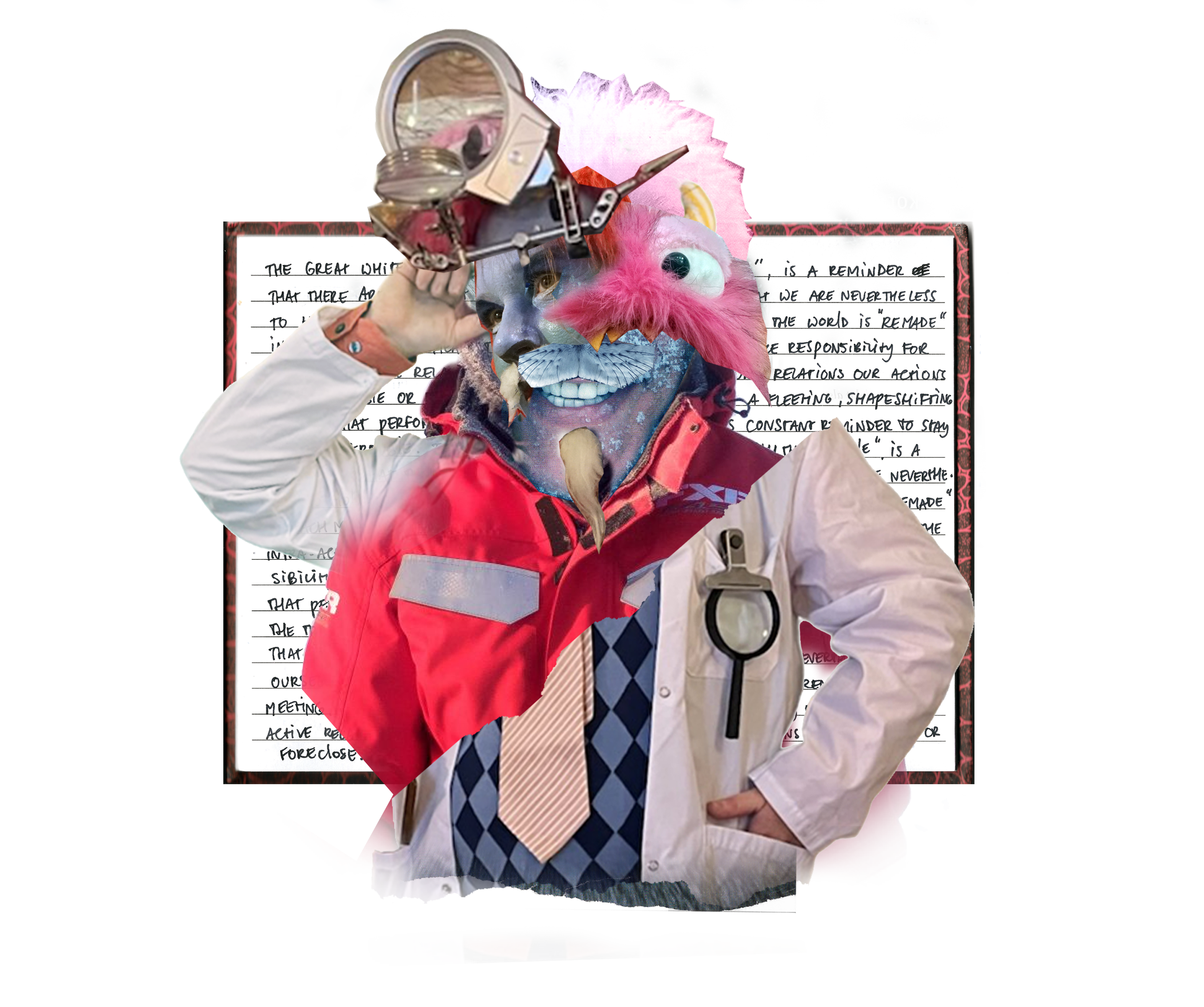Ethics of Response-Ability: Difference between revisions
No edit summary |
No edit summary |
||
| Line 15: | Line 15: | ||
Neither option is “innocent.” There are no "easy ways out". | Neither option is “innocent.” There are no "easy ways out". | ||
<div class="next_choice">In dealing with this Great White Beast, I have chosen to | <div class="next_choice">In dealing with this Great White Beast, I have chosen to put a very selective body of western scholarship in dialogue with Indigenous principles of ethical engagement. | ||
I | I do this to formulate ways of thinking outside of the classic western subject/object divides, while not appropriating Indigenous paradigms. | ||
'''"Return"''' to cut 3 to start tracing the Bearwatch project. </div> | '''"Return"''' to cut 3 to start tracing the Bearwatch project. </div> | ||
<span class="return to-cut-3 link" data-page-title="Wayfaring the BearWatch Project" data-section-id="8" data-encounter-type="return">[[Wayfaring the BearWatch Project#TEK Workshops|Return to Cut 3: Wayfaring the BearWatch Project]]</span> | <span class="return to-cut-3 link" data-page-title="Wayfaring the BearWatch Project" data-section-id="8" data-encounter-type="return">[[Wayfaring the BearWatch Project#TEK Workshops|Return to Cut 3: Wayfaring the BearWatch Project]]</span> | ||
Revision as of 10:11, 27 February 2025

You have encountered a “Great White Beast”, a fleeting, shapeshifting figure that performs the world as indeterminate.
The ethics involved when it comes to drawing from research paradigms that consider the world as indeterminate, intra-dependent and ontologically generative, cannot be resolved through ‘right’ ways of doing things.
Non-Indigenous researchers engaging any form of generative ontologies need to take responsibility for whichever option they choose:
1. engaging Indigenous scholarship, or
2. not engaging Indigenous scholarship.
Neither option is “innocent.” There are no "easy ways out".
I do this to formulate ways of thinking outside of the classic western subject/object divides, while not appropriating Indigenous paradigms.
"Return" to cut 3 to start tracing the Bearwatch project.